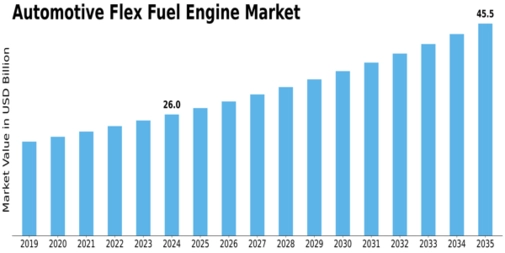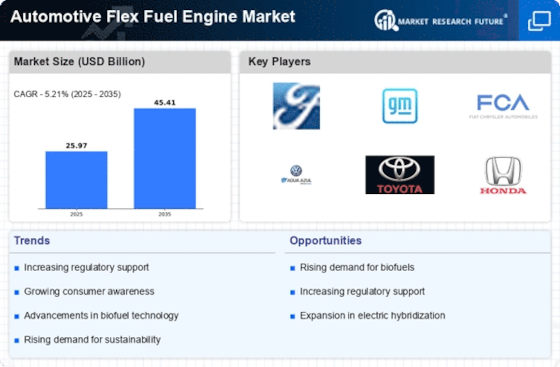Leading market players are investing heavily in research and development to expand their product lines, which will help the automotive flex fuel engine market grow even more. Market participants are also undertaking various strategic activities to expand their global footprint, with important market developments including new product launches, contractual agreements, mergers and acquisitions, higher investments, and collaboration with other organizations. The automotive flex fuel engine industry must offer cost-effective items to expand and survive in a more competitive and rising market climate.
Manufacturing locally to minimize operational costs is one of the key business tactics manufacturers use in the global automotive flex fuel engine industry to benefit clients and increase the market sector. The automotive flex fuel engine industry has offered some of the most significant advantages in recent years. Major players in the automotive flex fuel engine market, Mitsubishi Motors Corporation (Japan), Nissan Motor Co. Ltd. (Japan), Volvo Cars (Sweden), AUDI (Germany), Fiat Chrysler Automobiles (UK), Toyota Motor Corporation (Japan), Honda Motor Co.
Ltd. (Japan), General Motors Company (US), Ford Motor Company (US) and Volkswagen (Germany) are attempting to increase market demand by investing in research and development operations.
Nissan Motor Corporation, commonly abbreviated as Nissan, is a global Japanese automaker headquartered in Nishi-ku, Yokohama. The labels under which the firm distributes its cars are Nissan, Infiniti, and formerly Datsun. Nismo is the name of their in-house performance tuning line of goods, including automobiles. The organization's first predecessor is the Nissan Zaibatsu or Nissan Group. To gain an advantage over its rivals, Nissan Motor Co. Ltd. (Japan) invests a sizeable amount of money in the research and development of flex-fuel engines. This will assist the business in increasing sales revenue.
Volkswagen, sometimes known as VW, is a German automaker headquartered in Wolfsburg, Lower Saxony. Ivan Hirst, a British Army officer, revived the German Labour Front's 1937 global brand after World War II. It is best known for the iconic Beetle and serves as the flagship brand of the Volkswagen Group, the largest automaker by global sales in 2016 and 2017. China is the group's largest market, accounting for 40% of sales and profits.
Audi, SEAT, Porsche, Lamborghini, Bentley, Bugatti, Scania, MAN, and Koda are just a few of the automotive and truck brands that fall under the umbrella of the Volkswagen Group, a huge international organization. The global headquarters of Volkswagen Group is situated in Wolfsburg, Germany, the birthplace of Volkswagen. Volkswagen has decided to turn Brazil into a hub for flex-fuel engines that operate on ethanol or petrol for hybrid vehicles starting in 2021.









Leave a Comment